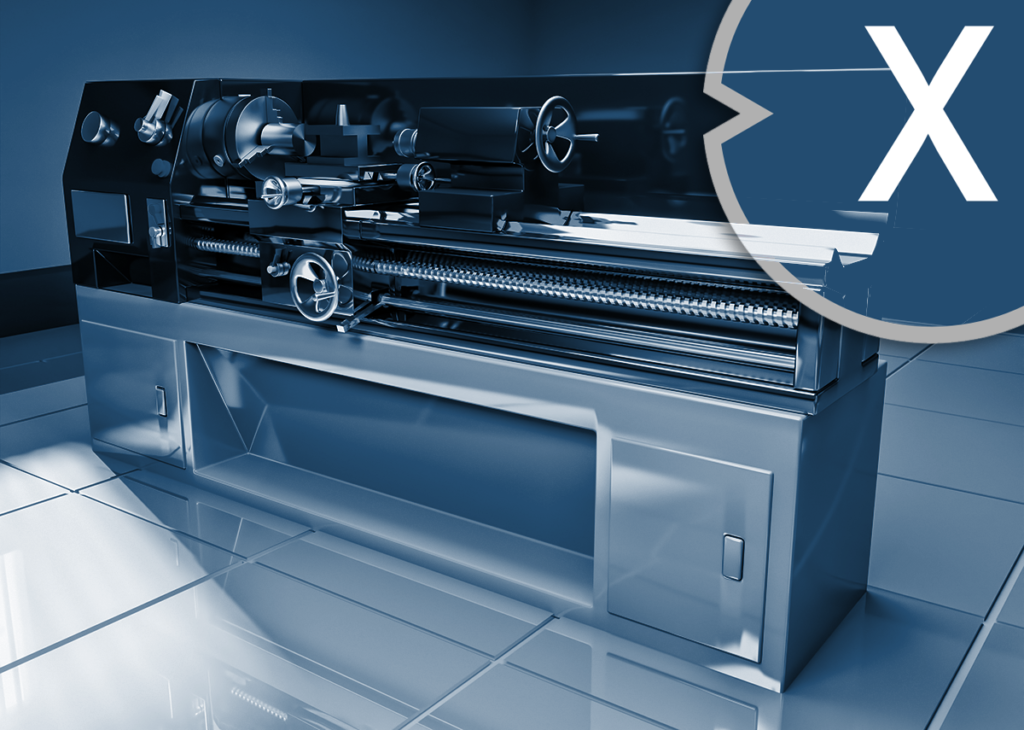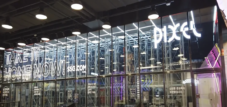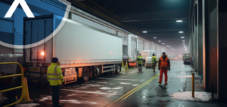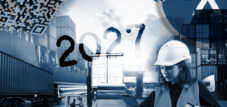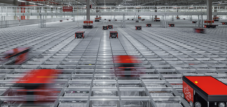Logistical process automation – future-proof storage solutions – also with regard to the shortage of workers and skilled workers
Language selection 📢
Published on: February 6, 2024 / Update from: February 6, 2024 - Author: Konrad Wolfenstein
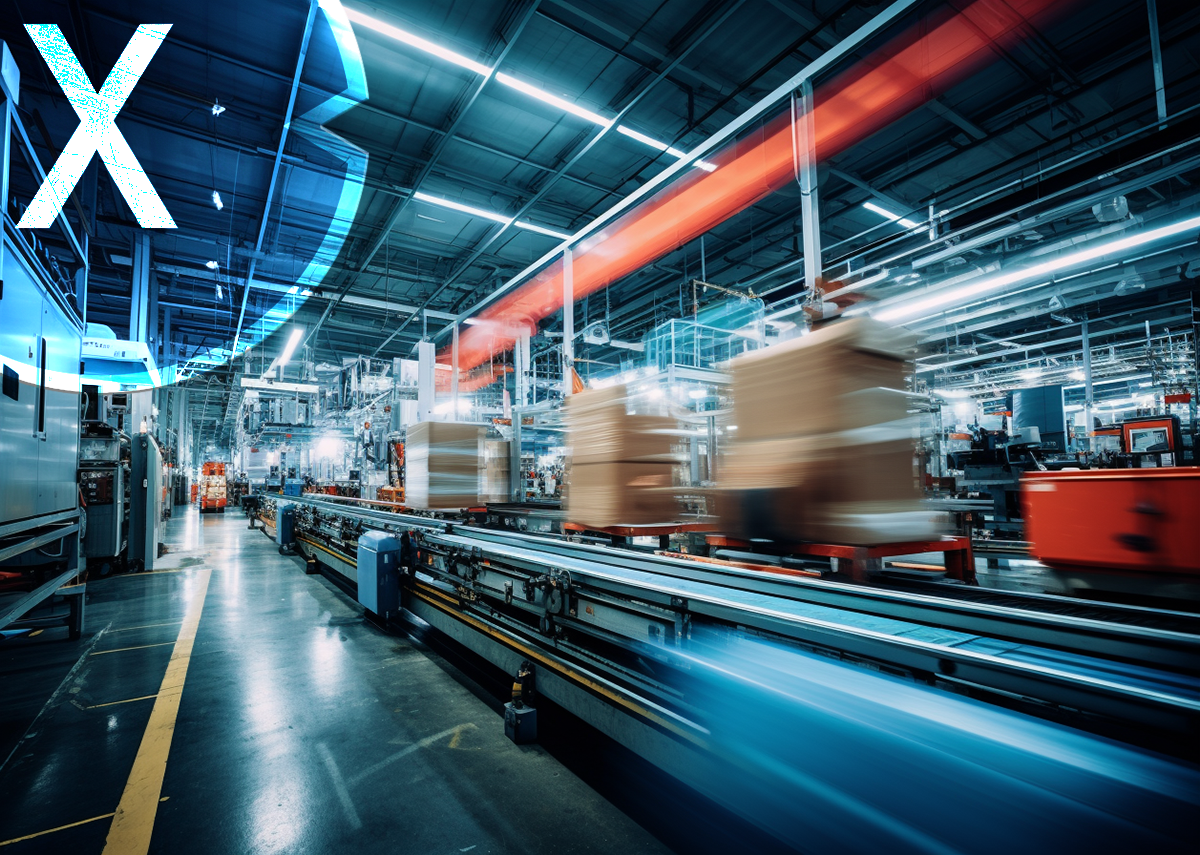
Future-proof storage solutions – also with regard to the shortage of workers and skilled workers – Image: Xpert.Digital
📦🚀 The world of warehousing and logistics 🔄
📦 The world of warehousing and logistics faces unprecedented challenges and opportunities given rapid technological developments and the ever-growing e-commerce sector. Logistical process automation is no longer just a concept for the future, but a necessary investment for companies that want to remain competitive in the current market. This is even more true given the labor and skilled labor shortage that is affecting many industries worldwide.
🤖 Innovative technologies as the core of future-proof storage solutions
One of the most striking developments in the field of warehousing and logistics are the innovative technologies that are paving the way for automation. Order picking robots, autonomous vehicles and a variety of other smart devices are revolutionizing the way warehouses operate. These technologies not only enable warehouse processes to be handled more efficiently and error-free, but also directly address the challenges associated with labor and skilled labor shortages.
However, seamlessly integrating these devices and systems into existing warehouse infrastructures requires thoughtful planning and implementation. Intelligent software plays a crucial role here. It forms the backbone of logistical process automation by connecting the various technological elements and enabling efficient, coordinated work.
🔧 The importance of a tailored solution
Every company faces unique challenges and has individual requirements when it comes to warehousing and logistics. Therefore, it is of utmost importance that the automation solutions offered are not only advanced but also tailor-made. This requires a provider who is willing to listen and dive deep into the customer’s specific processes and needs.
A comprehensive portfolio of systems, intelligent software and life cycle services is critical to effectively address a wide range of challenges. From initial planning through implementation to maintenance and optimization – a holistic approach ensures long-term success and sustainability.
📦 Challenges in e-commerce logistics
E-commerce logistics faces special challenges. Customers' expectations of fast delivery times, flexibility and transparency are putting companies under pressure. At the same time, the enormous volume of orders, especially during peak periods such as the Christmas shopping season, leads to complex logistical requirements.
In order to meet these challenges, innovative storage solutions are required that enable quick and error-free picking, packaging and shipping. Automation and intelligent systems play a central role. Not only do they need to be efficient, but they also need to be scalable to keep up with business growth and fluctuations in order volume.
🌱 Sustainability as a crucial factor
Another important aspect that cannot be neglected these days is sustainability. Companies are under increasing pressure to minimize their environmental impact. Automated storage solutions can make a significant contribution here, for example by reducing energy consumption or ensuring more efficient use of resources.
In addition, the use of reusable packaging materials and the optimization of supply chains to reduce CO2 emissions opens up further opportunities for companies to improve their ecological balance. These efforts are not only necessary from an ethical perspective, but also correspond to the desire of many customers for more sustainable products and services.
💡 Immense opportunities for businesses
Logistical process automation offers immense opportunities for companies to optimize their warehouse and logistics processes and thus become more competitive. However, the successful integration of order picking robots, autonomous vehicles and intelligent software into the warehouse infrastructure requires close cooperation between providers and companies. Tailor-made solutions that take specific needs and requirements into account are the key to success.
In times of labor and skilled labor shortages, the enormous growth of e-commerce and increasing demands for sustainability, companies must take bold steps towards automation and intelligent technologies. This is the only way they can master the challenges of today and tomorrow and shape an efficient, sustainable and customer-oriented future of logistics.
📣 Similar topics
- 🌟 Automation in logistics: opportunities and challenges
- 🤖 Wave of innovation in warehousing: robots and autonomous vehicles
- 🖥️ Intelligent software in logistics process automation
- 🛒 E-commerce logistics: speed and efficiency
- 🌱 Sustainable storage solutions: environmental friendliness in logistics
- 👥 Tailored automation solutions for companies
- 🚚 Scalability in warehouse logistics: Keeping pace with growth
- 🌐 Transparency and flexibility in e-commerce logistics
- 🌿 Sustainability in logistics: ecological responsibility
- 💼 Logistical process automation: strengthen competitiveness
#️⃣ Hashtags: #Automation #Innovation #Logistics #ECommerce #Sustainability
📦🌐Matching: Vanderlande presents future-proof storage solutions at LogiMAT 2024 🚀🔧
Vanderlande invites visitors to LogiMAT 2024 to experience the warehousing of tomorrow today. From March 19-21, the company's experts will discuss the challenges facing warehouse operators and provide advice based on the company's extensive portfolio of innovative systems, intelligent software and life cycle services.
Visitors to the Vanderlande stand (J31 in Hall 1 at Messe Stuttgart) will get a detailed look at FASTPICK, the company's goods-to-people order fulfillment system. An interactive 3D model illustrates how this market-leading solution works, enabling warehouses worldwide to reduce lead times and process orders more accurately.
Exciting new technologies such as picking robots and autonomous vehicles are currently causing a stir, and Vanderlande's team of experts explains how these can be seamlessly integrated into the company's future-proof warehouse solutions.
In an exclusive session as part of LogiMAT Exhibitor Insights on Tuesday, March 19th (2:30 p.m. in Forum Nord, Hall 7), Vanderlande and Digitec Galaxus, the leading Swiss e-commerce retailer, will be on stage. Together they explain what challenges need to be overcome behind the scenes in e-commerce logistics.
“We look forward to meeting our customers at this year’s LogiMAT,” said Robert Viegers, Executive Vice-President for Warehouse Solutions at Vanderlande. “We make it a point to listen carefully to each customer’s specific requirements. And our team is happy to explain how our innovative, efficient warehouse automation solutions can help respond to pressing issues such as sustainability and labor shortages.”
Vanderlande will also be present at Toyota Material Handling's stand H48 (in Hall 10).
🎯🎯🎯 Benefit from Xpert.Digital's extensive, fivefold expertise in a comprehensive service package | R&D, XR, PR & SEM

AI & XR 3D Rendering Machine: Fivefold expertise from Xpert.Digital in a comprehensive service package, R&D XR, PR & SEM - Image: Xpert.Digital
Xpert.Digital has in-depth knowledge of various industries. This allows us to develop tailor-made strategies that are tailored precisely to the requirements and challenges of your specific market segment. By continually analyzing market trends and following industry developments, we can act with foresight and offer innovative solutions. Through the combination of experience and knowledge, we generate added value and give our customers a decisive competitive advantage.
More about it here:
🧊 Technology leader Japan in refrigerated logistics – better working conditions optimize distribution processes
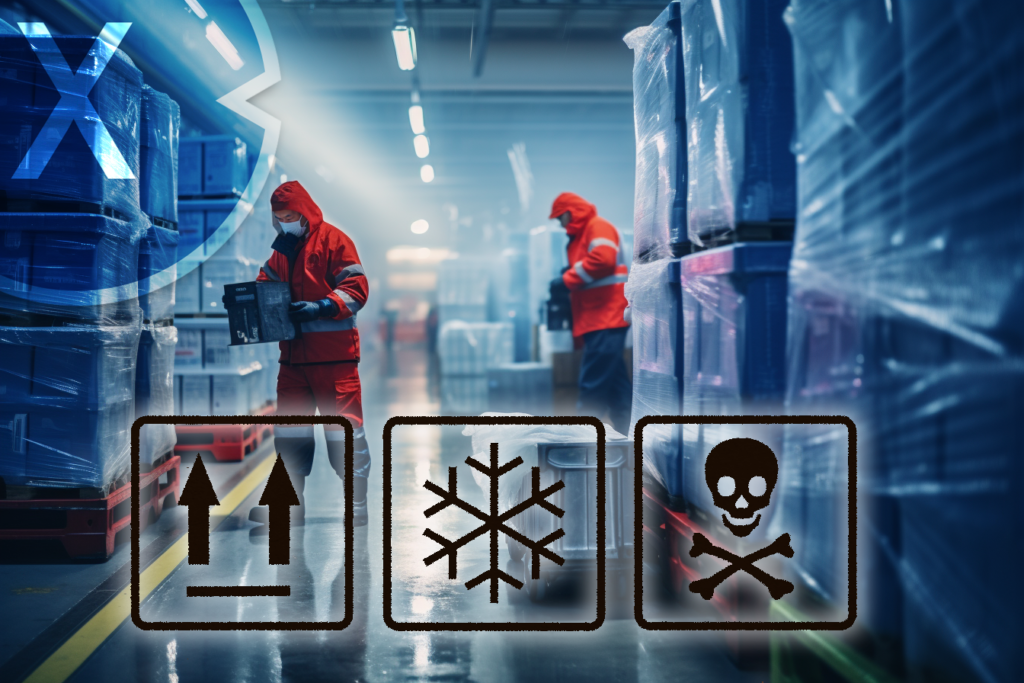
Refrigerated logistics/fresh logistics: Cold storage with automated material flow optimizes distribution processes - Image: Xpert.Digital
Asian countries such as Japan in particular are considered pioneers here. Tokyo, one of the largest cities in the world with over 38 million inhabitants, impressively shows how high population density and quality of life can be combined with the help of innovative urban and infrastructure planning. The expansion of efficient transport and supply systems has been the focus here for decades.
More about it here:
🔍 Future-oriented technologies in logistics
🔗 Future-oriented automation and AI
Advances in automation technology and artificial intelligence (AI) are opening up new dimensions in the logistics industry. Machine learning and advanced algorithms enable robots and autonomous systems to adapt adaptively and intelligently to changing environments and tasks. This means continuous improvement in process efficiency over time as systems learn from every interaction.
Another step towards future-proof storage solutions is the Internet of Things (IoT) and blockchain technology. IoT devices collect and transmit real-time data, increasing transparency and traceability throughout the supply chain. Blockchain can ensure secure and immutable transaction logs, which is particularly beneficial in terms of quality control, proof of origin and trusting partnerships.
📊 The role of data analytics and AI
The collection and analysis of large amounts of data play a crucial role in optimizing warehouse and logistics processes. Through precise data analytics, patterns can be identified, predictions can be made, and appropriate adjustments can be made. This ranges from inventory management to personnel planning to route optimization for delivery. AI-based systems are able to react dynamically to changes, thereby increasing efficiency and responsiveness.
🤖 Man and machine: A symbiosis
Despite advances in automation, people remain an indispensable part of logistics processes. The challenge is to create an optimal symbiosis between human workers and machines. By relieving them of monotonous or physically demanding tasks, employees can concentrate on more complex and value-adding activities. In addition, human-machine interaction is crucial for monitoring, maintaining and fine-tuning automated systems.
🌟 Outlook and vision: The warehouse of the future
The warehouse of the future is a place where technology and human capabilities work together in a seamless and efficient way. By using AI, IoT, and robotics, supported by a data-driven infrastructure, logistics centers not only become more efficient, but also more resilient to fluctuations and challenges.
Another future-oriented aspect is the increasing personalization of logistics. Through advanced data analysis and flexible automation systems, increasingly specific customer requests can be met. This ranges from individual delivery options to personalized products that are manufactured and shipped from the warehouse on-demand.
Ultimately, sustainability will become an integral part of all logistics processes. By optimizing resource use, reducing waste and promoting a circular economy, future-proof storage solutions set new standards in ecological responsibility.
📝 Logistical process automation
Logistical process automation is on the threshold of a new era. For companies that are prepared to invest in the technologies and systems of tomorrow, unimagined opportunities to increase efficiency, improve customer satisfaction and make their business models sustainable are opening up. By seeing the challenges of labor and skilled labor shortages, growing e-commerce and ecological responsibility as an opportunity, they can not only consolidate their position in the market, but also actively shape the future of logistics.
📣 Similar topics
- 🤖 Future of Logistics: Technological Advances
- 🔗 IoT and blockchain in supply chain optimization
- 📊 Data analytics and AI in logistics
- 🤝 Human-machine symbiosis in warehouse logistics
- 🏭 The warehouse of the future: vision and reality
- 🎯 Personalization in logistics: fulfilling customer wishes
- 🌿 Sustainable logistics: ecological responsibility
- 🚀 Logistical process automation: opportunities and possibilities
- 💡 Innovations in the storage industry
- 💼 Future security through technological investments
#️⃣ Hashtags: #Logistics #Automation #AI #Sustainability #Future
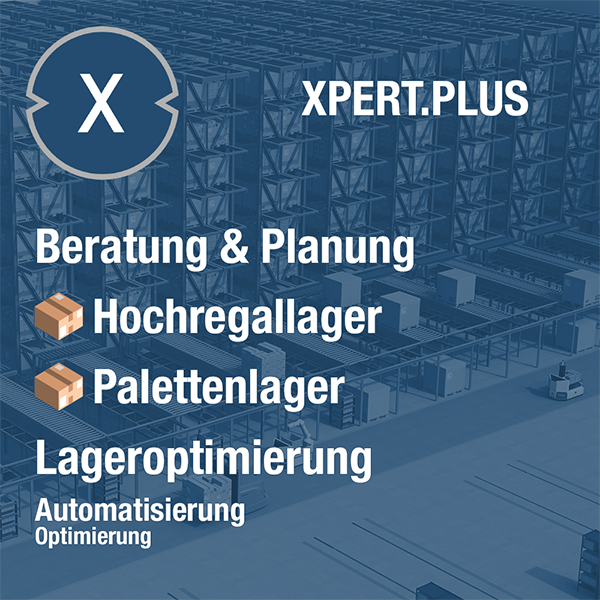
Xpert.Plus warehouse optimization - high-bay warehouses such as pallet warehouses consulting and planning
🚀 Integration of advanced technologies and strategies
📐📏 However, integrating these advanced technologies and strategies requires more than just a financial investment. It requires a vision, a willingness to change and the development of a culture of innovation within the organization. Companies must be prepared to question existing processes and view digital change as an opportunity for improvement rather than a threat.
🔄 Adaptability and scalability
One of the most important considerations for future-proof storage solutions is the ability to scale and adapt to changing market conditions. While a company may only manage a limited number of SKUs (stock keeping units) today, tomorrow it may need to adapt to a much broader range of products or entirely new product categories. The warehouse infrastructure must be able to grow and adapt with these demands without the need for extensive reconfigurations.
🤝 Partnerships and collaborations
No company can master the challenges of logistics process automation alone. Developing effective solutions requires partnerships between technology providers, logistics service providers and the end users of the systems. Collaboration can create innovative approaches that meet the specific needs of each company.
In addition, collaboration in networks promotes the exchange of best practices and experiences. This can help companies avoid pitfalls and accelerate the path to implementing successful solutions.
🎓 Training and development of the workforce
The automation and digitalization of warehouse processes are leading to a change in the demands placed on the workforce. As routine tasks are increasingly being taken over by machines, the need for qualified workers who are able to deal with complex systems, analyze data and optimize processes is increasing.
Investments in training and further education are therefore crucial. By providing their workforce with opportunities to learn new skills and become familiar with the latest technologies, companies can not only ease the transition to automated processes, but also create a culture of continuous improvement.
🌐 Merging online and offline worlds
While e-commerce continues to grow, physical retail presence remains important. Omnichannel strategies that enable seamless integration of online and offline experiences require flexible and adaptive logistics systems. For example, warehouses must be able to process online orders efficiently while ensuring delivery to stores. This requires a high level of coordination and the ability to respond to rapid changes in demand behavior.
🌟 Looking into the future
The logistics industry is at a turning point. Rapidly advancing technology, along with pressure to operate more sustainably and address skills shortages, is driving companies to rethink their warehousing and logistics processes. The successful implementation of logistics process automation requires a holistic view that includes technology, people and processes.
It's a challenging but exciting time for the industry, with unlimited opportunities for improvement and innovation. Companies that take the right steps now can not only increase their efficiency and competitiveness, but also become leaders in shaping the future of logistics. The signs point to change, and the future belongs to those who are prepared to actively shape it.
📣 Similar topics
- 🌟 Visionary logistics: The path to innovation
- 🔄 Willingness to change in the warehouse world
- 📈 Scalable storage solutions for the future
- 🤝 Partnerships for success in logistics
- 📚 Education and development in the warehouse industry
- 🌐 Linking online and offline worlds in logistics
- 🌍 Logistics in transition: challenges and opportunities
- 💼 Holistic view of logistics process automation
- 🚀 Innovations and opportunities in the logistics industry
- 🔮 Shaping the future: The role of companies
#️⃣ Hashtags: #Logistics #Innovation #Automation #Education #Omnichannel
We are there for you - advice - planning - implementation - project management
☑️ Smart City & Factory: Industry expert for energetic 5G buildings and halls as well as advice and installation of solar systems
☑️ Xpert.Plus - logistics consulting and logistics optimization
☑️ Industry expert, here with his own Xpert.Digital Industry Hub with over 2,500 specialist articles
I would be happy to serve as your personal advisor.
You can contact me by filling out the contact form below or simply call me on +49 89 89 674 804 (Munich) .
I'm looking forward to our joint project.
Xpert.Digital - Konrad Wolfenstein
Xpert.Digital is a hub for industry with a focus on digitalization, mechanical engineering, logistics/intralogistics and photovoltaics.
With our 360° business development solution, we support well-known companies from new business to after sales.
Market intelligence, smarketing, marketing automation, content development, PR, mail campaigns, personalized social media and lead nurturing are part of our digital tools.
You can find out more at: www.xpert.digital - www.xpert.solar - www.xpert.plus
Industrial & B2B Business Metaverse: Reduce costs with XR technology for photorealistic product images (XR 3D rendering machine)
XR technology offers a superior solution for creating photorealistic images and allows companies to free themselves from the expensive fees of external media agencies. It is common knowledge that media agencies charge high costs to create such images as it requires expertise, special software and collaboration with various experts.
More about it here:






